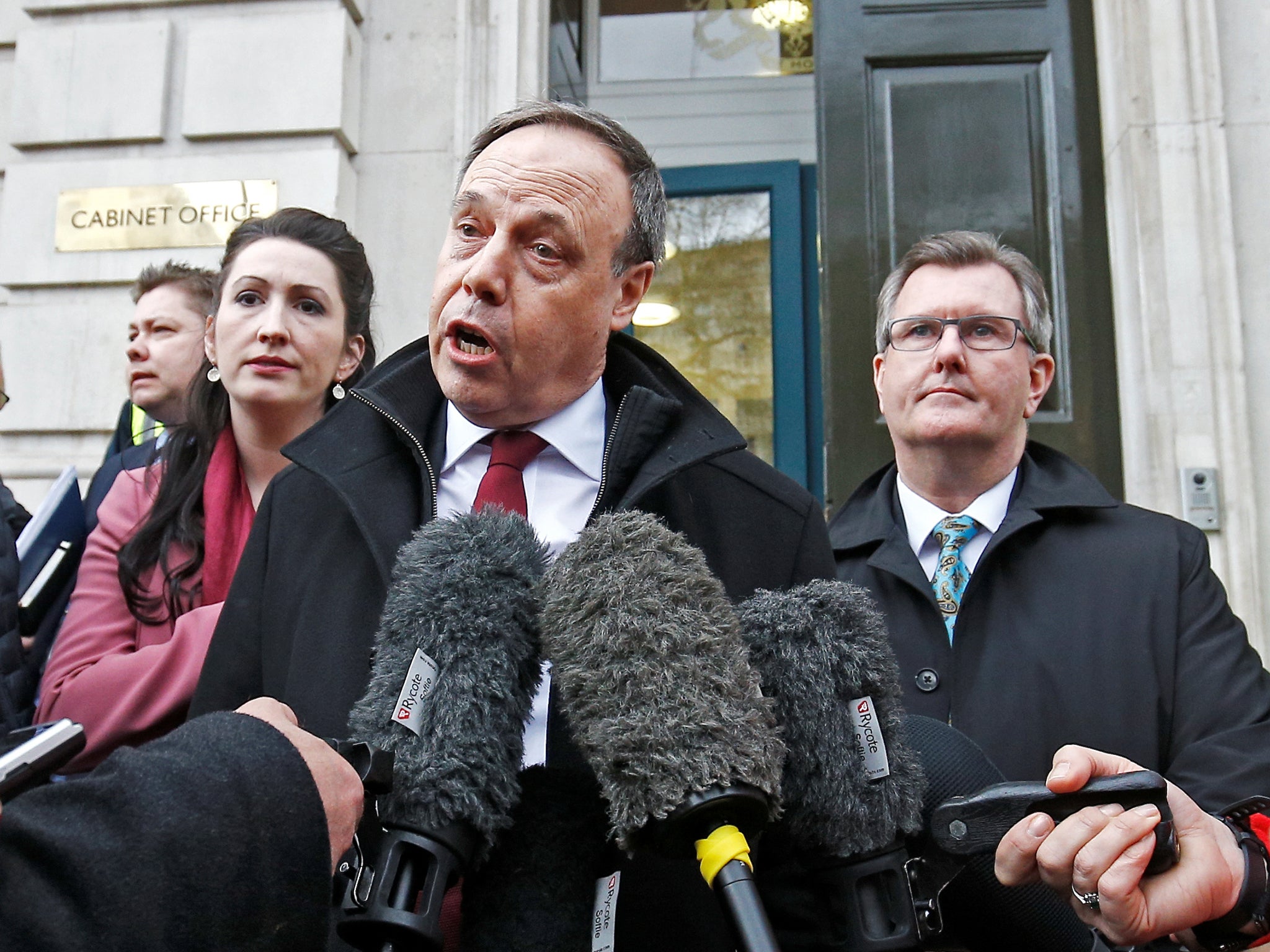How is the government trying to convince the DUP to back Theresa May’s Brexit deal?
Analysis: Ministers continue their talks to win the backing of the Northern Irish party. Political editor Joe Watts looks at what they might be promising

When Philip Hammond, Michael Gove, Theresa May’s deputy David Lidington and chief whip Julian Smith all sit down to make you an offer, you know it is going to be a serious one.
This was the assembled cast earlier in the week as the government began the difficult business of trying to convince their Northern Irish partners to back the prime minister’s Brexit deal – absolutely critical to its chances of passing through the Commons on Tuesday.
The DUP have long taken an absolutist line on refusing to back her withdrawal agreement because of the presence of the Irish backstop.
But there has always been a suspicion in some quarters that the ferocity of their opposition is a handy facade, appearing to be tough-as-nails negotiators to get what they want.
The fact that they are still in talks at all shows that they are prepared to cut a deal regardless of whether the backstop in the agreement is changed, since that is no longer possible.
That they agreed a confidence-and-supply deal with the government two years ago for an extra £1bn in spending in Northern Ireland also suggests they are not immune to the pull of hard cash.
So taking in what can be gleaned from public statements and private steers, it looks like the offer being worked on can be divided into three categories: weakening the grip of the backstop; ensuring Northern Ireland does not diverge from the rest of Britain; and financial sweeteners.
The first might end up being addressed by a unilateral declaration from the UK government that it will, if needs be, use international law to get out of the backstop so hated by Eurosceptics.
The backstop is an arrangement that comes into play in December 2020 if no new trade deal has been signed by the UK and EU by then. Its purpose is ostensibly to ensure the Irish border stays open, but it would also have the effect of potentially keeping the UK in a customs union with Brussels indefinitely.
While recent additions to the withdrawal agreement have strengthened the UK’s ability to leave the arrangement in some circumstances, the new declaration would commit a future British government to determinedly using international law to try and escape it.
The government is said to be trying to address the divergence questions with a new “Stormont lock”, some legal text to be enshrined in the yet-to-be-passed withdrawal agreement bill stating that any new regulation pushed upon Northern Ireland from Brussels while the UK remains in the backstop would be accepted or rejected by the whole UK as one.
One area that falls into the financial sweetener category is the possibility that Northern Ireland would be allowed to reduce air passenger duty, which is currently lower in the Republic of Ireland, putting the north at a competitive disadvantage.
Then there is likely to be the lump sum cash element, which will probably not become clear until a spending review later in the year. That will give ministers in London and politicians in Belfast cover to deny support has been bought in any way.
The DUP – and it is the Northern Irish party in the driving seat of these talks – has a propensity for cutting deals at the last second, so chances are there will be no sign of a breakthrough until late Monday or even Tuesday.
Got an unanswered question about Brexit? Send it to editor@independent.co.uk and we’ll do our best to supply an answer in our Brexit Explained series
Join our commenting forum
Join thought-provoking conversations, follow other Independent readers and see their replies
Comments